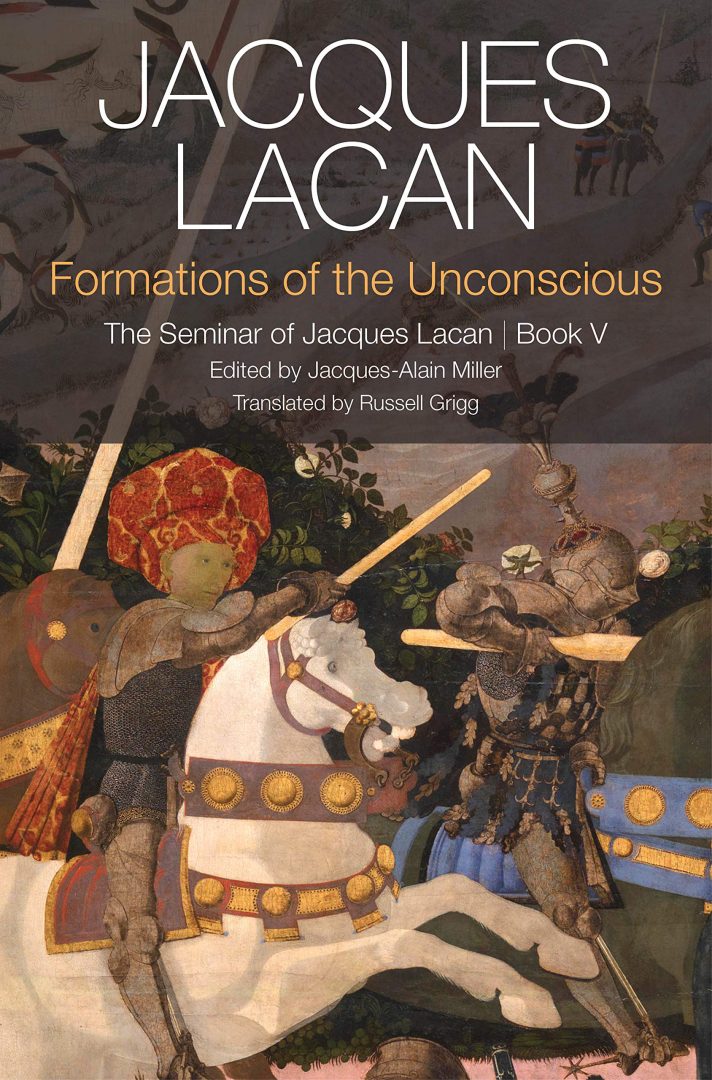Table of Contents
Psychoanalysis as Philosophical Mirror
In The Seminar, Jacques Lacan transforms Freudian psychoanalysis into a radical philosophical discourse. Across more than two decades of lectures (1953–1981), Lacan fuses linguistics, structuralism, and Freudian theory to explore the structure of the unconscious, the symbolic order, and the nature of subjectivity. These seminars are not mere extensions of Freud—they are revolutionary philosophical meditations in their own right.
With each volume, Lacan invites readers into a labyrinth of meaning, challenging conventional notions of self, language, desire, and truth.
Core Themes: Language, Desire, and the Subject
The Unconscious is Structured Like a Language
This foundational Lacanian thesis reframes Freud’s unconscious not as a biological residue, but as a symbolic formation, governed by signifiers and syntactic rules. Drawing from Saussure and Jakobson, Lacan asserts that the subject is born into a preexisting linguistic order that shapes desire, identity, and reality.
“The unconscious is the discourse of the Other.”
In other words, your unconscious is not yours—it is constructed in and through language systems you did not choose.
The Mirror Stage: Identity as Misrecognition
One of Lacan’s most cited contributions, the Mirror Stage, describes the formation of the ego through a misrecognized image of wholeness. When an infant sees its reflection, it experiences a jubilant sense of unity—but this unity is an illusion. The ego, then, is a fiction constructed from external images and social expectations.
This lays the groundwork for Lacan’s later thesis: the split subject, a being perpetually alienated from itself.
Desire and the Lack
Lacan displaces Freud’s libido theory with a more structural, symbolic conception of desire as lack. Human desire is never direct; it is always mediated through the desire of the Other. We desire not the object itself, but the signifier of desire—the elusive, symbolic presence known as objet petit a.
This makes Lacanian analysis a philosophy of absence, incompleteness, and longing—a rejection of all totalizing systems of meaning.
The Symbolic, Imaginary, and Real
In Lacan’s tripartite schema:
- The Imaginary is the realm of images, illusions, and identifications.
- The Symbolic is the network of language and law.
- The Real is what resists symbolization—the unspeakable kernel of trauma and truth.
The subject is caught in these interlocking registers, seeking coherence in a world that constantly slips out of conceptual grasp.
Influence and Legacy
The Seminar is not a single book but a series—each volume an intellectual event in psychoanalytic and philosophical thought. Key volumes include:
- Seminar I–II: Early engagement with Freud and Hegel
- Seminar XI: The Four Fundamental Concepts of Psychoanalysis – perhaps his most accessible and influential
- Seminar XX: Encore – develops themes of sexuality, jouissance, and the limits of knowledge
Lacan’s influence spans:
- Poststructuralism (Derrida, Žižek, Butler)
- Critical theory and film studies
- Feminist and queer theory
- Philosophy of language and ontology
Strengths and Limitations
Strengths:
- Lacan’s work is deeply original, fusing multiple disciplines into a new mode of thinking.
- He exposes the limits of self-knowledge in a profoundly postmodern way.
- His ideas are immensely generative for fields far beyond psychoanalysis.
Limitations:
- Lacan’s writing style is infamously obscure, sometimes intentionally so.
- The dense terminology can frustrate even advanced readers.
- Philosophical clarity is often sacrificed for rhetorical provocation.
Who Should Read It?
- Students of Freud, Hegel, or Saussure looking to deepen their understanding of the subject
- Readers of postmodernism, semiotics, and critical theory
- Thinkers interested in identity, language, and unconscious desire
- Anyone prepared for a challenging but transformative engagement with philosophical psychoanalysis
TL;DR
The Seminar is a philosophy of human incompleteness, where language forms the very fabric of our alienation and identity. Lacan builds not a system, but a symbolic mirror, forcing us to confront the fissures in reason, the gaps in self, and the haunting presence of the Real. It is not an easy read—but it is a necessary one for anyone committed to understanding the enigma of the human subject.

Leave a Reply